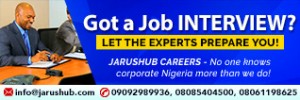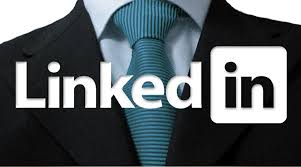Top Questions Asked in Bank Interviews and Answers

The interview tips shared in this article apply to all banks in Nigeria as listed below:
-
- Access Bank
- Citibank
- Diamond Bank
- Ecobank Nigeria
- Fidelity Bank Nigeria
- First Bank of Nigeria
- First City Monument Bank
- Guaranty Trust Bank
- Heritage Bank plc
- Keystone Bank Limited
- Providus Bank plc
- Skye Bank
- Stanbic IBTC Bank Nigeria Limited
- Standard Chartered Bank
- Sterling Bank
- Suntrust Bank Nigeria Limited
- Union Bank of Nigeria
- United Bank for Africa (UBA)
- Unity Bank plc
- Wema Bank
- Zenith Bank
- Non-interest banks
- Jaiz Bank
- Merchant banks:
- Coronation Merchant Bank
- FBN Merchant Bank Limited
- FSDH Merchant Bank
- Rand Merchant Bank
- Nova Merchant Bank
Banks are the biggest employers of fresh graduates in the country, especially as they do not specify a particular discipline for their roles. Nigerian banks advertise their graduate trainee positions regularly and most are done annually. When these roles are advertised, lots of graduates apply and the processes of the recruitment vary across banks. But the regular process goes as thus:
- Aptitude tests (See how to pass aptitude tests and aptitude tests used by Nigerian banks);
- Psychometric tests;
- Assessment centers or group discussion (See why companies hold assessment centre exercises; academic brilliance is not enough to pass an assessment center exercise and how to pass assessment center exercises);
- Interview, interview chat (See differences between interview chat and interview) and
- Finally an offer subject to passing a medical test (See diseases that can make one fail a medical test and jobs: hepatitis and medical tests).
From bank teller jobs to contract ND and HND jobs, to graduate and executive trainee jobs to marketing, customer service or customer care and operations jobs, to even experienced hire positions, these questions are usually asked.
THE INTRODUCTION
- Tell us about yourself: A very common question not just in banking interview but other industries. This question requires you to summarise your CV. Don’t be too verbose that the interviewers will be the one to stop you. Be succinct, about 5 to 7 liners should do. Just state your name, your educational qualifications (you may start from your secondary education), your achievements (if any). Something as thus:
“I am Raphael Udo, born 26 years ago in Akwa Ibom state. I attended Uyo High School in the state capital, where I finished in the year 2010 as third best student. I later proceeded to the University of Uyo, where I finished with a first class degree in chemistry. At the university, I was the academic leader of the students’ group – Great Pace Setters. Additionally, I led a team that came third in a national debate on a topic centred on agriculture during my third year. I observed my youth service in Ogun State where I was the CDS leader and executed a personal pet project on children’s education. I enjoy travelling and have travelled to 27 states including Zamfara, Kogi, Taraba etc. I unwind by playing scrabble.
2. What is not on your CV that we should know?: As easy as the question might seem, it is not easy. Think about a situation or role or event where you played a major part. Also, you can talk about a job you had during your undergrad days that shaped your thought process, but is not really relevant to be included for the role currently being interviewed. Did you win an award during your primary school days? This is the time to mention it. Or you volunteered for a social cause? Discuss why you did it, what you learnt and the whole process involved. Do you have a notable certification but not relevant to the role? Say it. Endeavour to discuss why you did it and what you learnt. What about a particular sport or hobby you practise(d) but due to space constraints, you omitted it. Now is the time. Did you win an award in any? Or the number of goals scored? Let’s hear them. Just ensure it answer the question: What is not on your CV that we should know? Ensure you align the answers to the job. Did it make you a go-getter? Increased your analytical/numerical skill? Interpersonal abilities? Determination and learning capacity?
THE “WHY BANKING?”
3. Why banking?: Here, you are expected to demonstrate passion for the industry and what it offers you. Think about an event that made you fall in love with the industry. Do not talk about being unemployed for a long time as the reason for choosing the industry. This question is mostly asked if your degree is not banking or business related.
4. What would you be doing if you were not in banking?: You cannot say “I cannot be doing anything else” or “It is finance or nothing”. It comes across as desperation (which is not wrong either, but don’t show it). Here, the interviewers are desirous of what you would be doing differently if you were not in the industry. Choose that industry where you will be if not banking and prepare answers to why.
5. Why do you want this job?: Here, the interviewers want to know your reasons for choosing this role and how you can make an impact. Talk about your achievements/experiences/skills and align them to how they have prepared you for the role. This is the time to succinctly express your passion for the job.
“BEHAVIOURAL QUESTIONS”
6. We are humans and we make mistakes in our dealings. What was your last mistake and what did you learn from it?: The interviewer wants to know how you learn from shortcomings; how you learnt and what was learnt. Did you have a serious disagreement with a colleague? How was it handled? How would you have handled it differently? Here is the opportunity to recap the experience(s), narrate them and link the responses to the role.
7. You are hired and you discover a fraud in the unit you are. Your predecessor is your currently your boss. What would you do?: Your thought processes of hierarchy is being tested here, ditto your integrity. Think about a story to exemplify the question and how you were able to solve it. What if you have no story (as making up one is tantamount to lying and you could be caught in follow-up questions). As thus: “As a highly ethical individual, I won’t go against the firm’s principles. Discovering a fraud entails reporting to higher authorities saddled with the responsibilities of handling the situation while ensuring further fraudulent acts are not committed”.
8. Tell me about a time when you had to interact with a difficult client. What was the situation, and how did you handle it?: You should answer this question with a story. Discuss how the situation, the task at hand, action taken to solve it and the eventual result. What the interviewers are expectant of is to understand how you react to clients who might be too vocal, shout a lot at staff, be problematic, uncooperative etc. In banking, you will interact with different clients whether at the back, front or middle office. How you manage them courteously is important. The interviewers want to know how you have done same in the past.
SUBSCRIBE TO JARUSHUB FOR MORE TIPS ON JOBS & CAREER
[subscribe2]
9. When was that time you were able to successfully persuade someone to see things your way at work? You are expected to exhibit persuasive skills. How do you persuade someone or persons to go with your idea even when ordinarily they won’t? A vivid story (authentic) is needed to elucidate how you have been able to cajole this individual to go with your suggestion.
10. Tell me about a time when you made sure a customer was pleased with your service?: The recruiter want to know how you can go a long way to impress a client. This shows your customer service abilities as it is an important trait in the industry. You will face customers daily, so ensuring clients’ needs are attended to efficiently is vital. The extent at which you go to do this is a plus to the firm’s image and brand.
Ecobank Headquarters in Lagos
THE “WHAT DO YOU KNOW ABOUT US?”
11. What differentiates our firm?: Here, you are required to display understanding of the bank’s operations and business model. There are many banks with different business models, and a thing or two differentiates a bank from another. Could the bank be more involved in retail than investment? A particular region than another? Small businesses or conglomerates? Agriculture or oil and gas? This question requires you conducting due diligence on the firm’s operations, market capitalisation, business transactions, stock price, national/sub-regional or global reach, size of the bank etc. The answers from this can then be further divided to know her strengths and weaknesses (either of the bank or the department/division), regulatory issues affecting her, mergers and acquisition conducted over the past year(s) etc. You are to know the bank in-and-out and respond like you are solving her problems (which is actually why you are employed).
12. Who is our CEO?: Comes across as easy and cheap. But a candidate can fail this. Failing this depicts an uncaring attitude on who is your overall boss and the face of the firm you desire to work with. And that you don’t care about the decision makers. To impress them, don’t just mention the CEO’s name, but his/her educational qualification(s), award(s) (if s/he has won any), recent but relevant news about the individual (don’t bring up information that is meant to be private and not related to the bank. No one cares if his/her son recently got married. That does not increase the stock price).
13. What are some of the most significant deals our bank has completed in the last one year?: Here again, knowledge of the bank’s dealings is vital. You are not to mention all, just the most significant ones that you believed have made news and shaped the bank’s financial sheet. For instance, if she made five deals in the past year, you could mention two. However, a question on why those two or not mentioning another (thought to be significant) could prop up. Objective reasons laced with relevant economic data should be used to answer this.
THE “KNOWLEDGE OF MARKET/ECONOMY TRENDS”
14. Fixed Income, treasury bills or real estate. Which do you recommend to a client looking at diversifying his/her funds and why?: Your knowledge of the trio is important. Firstly, briefly explain what they mean and delve into why there are important avenues for investors desirous of multiplying their streams of income. Then ask for the details of the supposed client: That is, you want to work with the data involved. If no “supposed client”, you come up with your idea of a client. Through this way, you take control of the answer to this question.
15. Why should a company prefer equity finance to debt finance?: If you come from a non-business related background, explaining the meaning of the terms involved is a plus as it goes to exhibit knowledge of topics in the industry, ditto your passion. However, it is not necessary from someone with a related background. You are asked “why should…?” not “what is the difference?” or “which should a company choose?”. Rehearse the question for circa 3 – 5 seconds before explaining as rushing to answer might have you answering what was not asked.
16. What do you have to say about the present administration’s economic policies?: An interesting question and can go against or for you depending on how you answer it. You are to be objective and precise. If you dislike the administration, your aversion should not cloud your answer which should be based on accurate economic data. Additionally, this question is to ascertain your knowledge of the economy and the politics behind it. If you are an individual that follows the news and economic indices. No better opportunity to exhibit that passion than this. Just do not go on blabbing without knowing when to stop. However, ensure that with your knowledge, you take control of the interview. As you do not know where the loyalty of your interviewers lie, avoid the temptation to insult government – present or past – rather, try to be diplomatic by highlighting what the government is doing right and areas you think they can do better.
Keystone Bank Headquarters in Lagos
“THE CULTURE QUESTION”
17. When have you worked in a bad team? Which steps did you take to make it better?: This is to determine your leadership and creative abilities. Have you worked in a bad team previously? What did you do to ensure things got better? Here, you are being assessed on if you are someone who can take initiative(s) to ensure things get better. Or are you someone who follows the lead even when things are messy? Which ever, it is important you do not overly criticise your colleagues when explaining how things were bad in the group. For instance, “Although, the group’s leader was passionate about the plans, but s/he was quite lackadaisical by my standards. Things were not moving as they should. So I decided to call for a meeting with the team and discussed how things were going and how it should. Proffered ideas, the plans and eventual results if they are implemented. To ensure these ideas work, I volunteered to coordinate the activities. Within six months of my coordination, the situation improved and the group’s plans were achieved.” Just ensure your story is authentic.
18. Where do you see yourself in five years’ time?: Your future plans are assessed here. Be realistic with your prognostications while being ambitious but not overly. Talk about how the role will make you a better person and the kind of individual you will be during that duration. A recruiter is desirous to know if the position aligns with your goals and growth. Your best bet is to think realistically about where this position could take you and answer along those lines.
20. Why are you leaving your current job?: A tough one. But it is likely you will be asked. Ensure things are discussed positively without deriding your previous employment. It shows you will do same when you leave the current role being interviewed for (assuming you get hired). Alternatively, discuss it in a way that shows passion for the industry (if you are coming from another), taking on new but interesting opportunities and how the previous role has prepared you for this role being interviewed for.
HotProForum
21. What is your dream job?: Rhetorical as it gets. What other job is your dream job other than the role being interviewed for?
22. How would your classmates/colleagues describe you?: Do not be too negative or positive. Say something reasonable that can be defended even when they are asked behind your back (which recruiter does such?). Are you truly argumentative but curious? Then choose the latter. Are you methodical but quiet? Go with the former. Basically, choose a trait that is related to the role but describes you even when there is another similar to it.
23. What’s the last book you read?: The recruiter is desirous of your off-work duties and the kind of book you read. Here, name the book, why you read and what you have learnt should be mentioned and emphasised. Just do not mention a book that you have not read or a book that espouses racism, xenophobia or tribalism.
“THE OTHER QUESTIONS”
24. How many windows are in Lagos?: Here, the recruiter is not interested in the answer. Rather, it is the thought process that piques him/her. It is OK to ask for a pen and paper. For instance, there are residential, retail and office properties in Lagos. Make reasonable assumptions, workable figures and start off the breakdown. Think about how many persons are in Lagos using recent surveys. It might be 21 million, but for someone not thoroughly versed in calculations. Go with 20 million. How many windows do you think are in the average houses/flats in Lagos? How many offices? Certainly, there will be more residential properties than retail or office. After doing the breakdown for the residential, do same for retail and office complexes. Just have it in mind that no one knows, not even the governor, the total number of windows in the state. The recruiter is interested in your thought process not the product of such process. Key phrase: Be logical.
25. How much do you desire to be paid? Or how much should we pay you?: Generally, entry-level roles’ remuneration are fixed and the question is rarely asked. However, if you are coming with a preferred skill set (say a CFA or top class MBA) or your wealth of experience or even your network wealth output (think about private banking), you will be asked the question. Here is the time before the interview, proper research should be conducted about the role, duties performed, position, industry’s remuneration for similar role etc. Our featured companies’ section discusses remuneration for firms across various industries in the country; Nairaland and Glassdoor are good places to conduct such research. When you have satisfactorily determined the estimated amount/or range. To avoid devaluation, have a range or slightly above what they will likely pay you. For instance, if the firm pays N3.5m annually, you could place yours at N4m or N4.2m per annum.
26. What other companies are you interviewing with?: Here, the firm wants to know the competitor(s) for your skill set. How do they compete with them? What industry are they in? Your answer tells the recruiter if you are focused on a particular industry or various industries or roles (especially if for entry level or possess skills that could be transferred across industries).
For detailed one-on-one coaching on banks’ interviews, check out our interview and assessment center coaching service.
For more discussions on education and careers, join our forum, HOTPROFORUM
Subscribe free to JarusHub for more tips on careers and education
[subscribe2]
Established in March 2013, JarusHub is a Nigerian information hub with focus on career and management. It is rated Nigeria's most authoritative destination for online career resources. It parades an array of Nigerian professionals who share their career experiences with a view to bridging career information gap and mentoring a generation to success. JarusHub has revolutionised career information and experience sharing in Africa. Whether you're a student, a recent graduate or an established professional, or even an executive, you will always find something to learn on JarusHub. All enquiries to jarushub@gmail.com or 0808 540 4500. Facebook: www.facebook.com/jarushub; Twitter: @jarushub or @mcjarus.
How to Prepare for Your Job Interview
September 14, 2020How to Prepare for and Pass NNPC Interview
June 8, 2019
Let us have your say by leaving a comment belowCancel reply
Recommended For You
-
ANALYSING THE NEW FORBES MBA RANKING
October 26, 2015 -
4 Helpful Application Tips Job Seekers Neglect
June 18, 2019 -
How to write an amazing LinkedIn Profile
November 21, 2017










